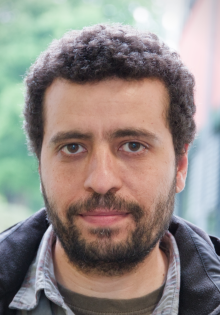The characterization of structure and dynamics in condensed phase systems that lack long-range order is still a challenging topic in present day physical chemistry. This is despite the fact that condensed phase spectroscopy has achieved tremendous technical advances in the past decades, enabling the measurement of the frequency, intensity, linewidth, and line shape of a spectrum with breathtaking accuracy. The challenging task however is to unravel from these experimental results the fundamental properties of the molecules that constitute the condensed phase. On this front, condensed phase molecular spectroscopy still poses serious interpretational challenges, and we are thus in a situation where instrumental responses are highly precise, but their relations to molecular quantities are --- more often than not -- imprecise.
Group activities
Our group focuses on the computational study of the spectroscopies of condensed phase systems, how to simulate these at an appropriate level of theory that strikes a good balance between accuracy and computational feasibility, and how to ultimately relate these spectra to the fundamental properties of the constitutent molecules and their dynamics. This requires the understanding of solids, liquids, possibly high-pressure gases also, and interfaces between them, as well as of radiation–matter interaction, and relaxation and transport processes in these environments. Obviously such a broad range of subjects can only be treated with a multitude of tools, and to this end we utilize electronic structure methods together with ab initio molecular dynamics simulations, and we heavily rely on the tremendous ongoing advances in high-performance computer clusters. Our long-term goal is not only to understand specific spectroscopic measurements of specific systems under some given context, but more generally, to develop a set of interpretive computational frameworks for spectra of condensed phases, and to facilitate the use of these tools by other researchers, through providing them as free and open source computer codes.




